CIVIL SOCIETY WATCH 17 – 22 APRIL
This week — Launch of Rise Mzansi as a ‘political alternative’, International Mother Earth Day and talk on SA’s food system
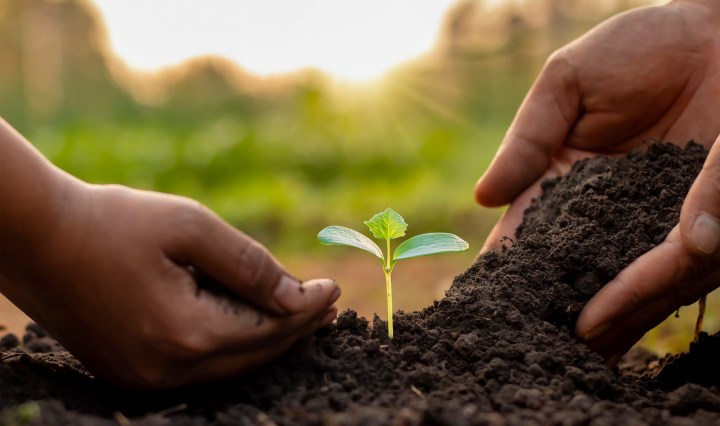
Rise Mzansi will officially announce itself as a ‘people-driven political alternative’ in South Africa; International Mother Earth Day will highlight the need to shift to a more sustainable economy; and the Institute for Economic Justice will host a webinar titled, ‘Towards a just transition in the South African food system: Perspectives on key issues’.
Monday 17 April is World Haemophilia Day.
The theme for this year’s World Haemophilia Day is “Access for All: Prevention of bleeds as the global standard of care”.
“Building on last year’s theme, the call to action for the community in 2023 is to come together and advocate with local policymakers and governments for improved access to treatment and care with an emphasis on better control and prevention of bleeds for all people with bleeding disorders,” according to the World Federation of Haemophilia.
“This means the implementation of home-based treatment as well as prophylactic treatment to help those individuals have a better quality of life.”
On Monday, 17 April, at 10am, the Wits Institute for Social and Economic Research hosted a webinar on the paper, “Platform economies: Beyond the North-South divide”, presented by Janet Roitman.
“Platform economies are depicted as the foundation for a new era of economic production. This transpires through the incorporation of digital technologies and algorithmic operations into the heart of economic and financial practices. However, different assumptions are made about the effects of digital platforms depending on geographical location,” according to the paper’s abstract.
“While digital platforms are approached as inherent to processes of financialisation globally, they are reduced to processes of financial inclusion when referencing the ‘Global South’.”
Read the paper here.
Access the webinar here.
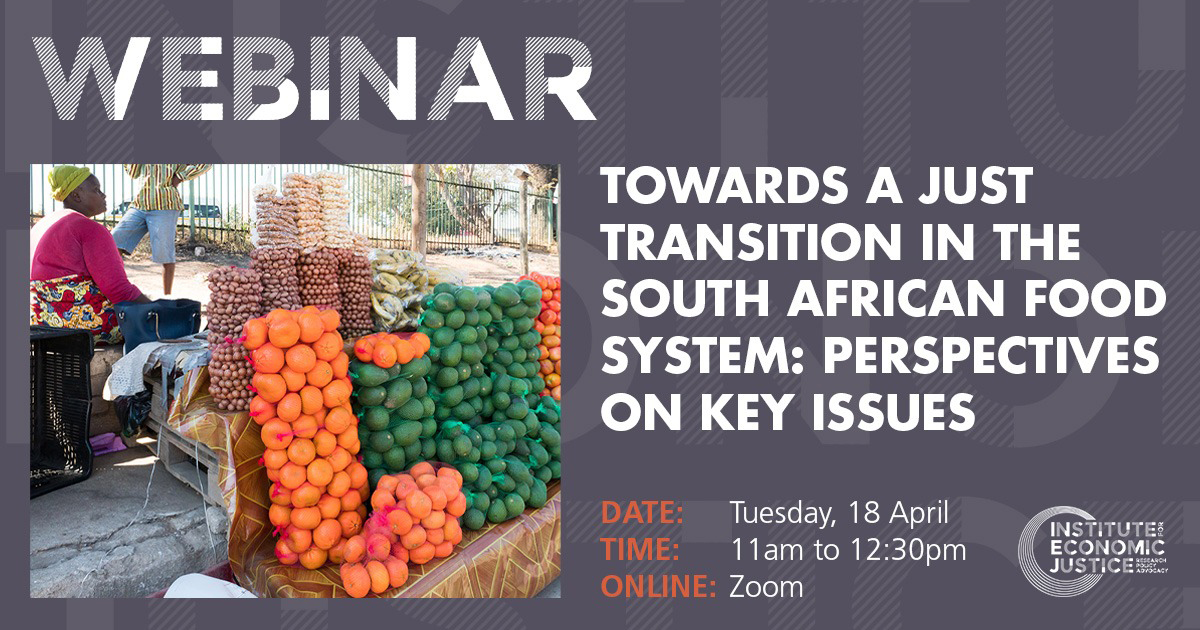
On Tuesday, 18 April, at 11am, the Institute for Economic Justice is hosting a webinar titled, “Towards a just transition in the South African food system: Perspectives on key issues”.
The webinar will explore what is at stake for workers and the poor in terms of climate change and the food system; the challenges for a just food system transition; the key needs and opportunities to push for a just transition; and the kinds of alliances that could make this happen.
“The South African food system is a key part of the country’s emissions that contribute to climate change, but it is also very vulnerable to climate change impacts. As these impacts continue, practices in farming, food processing and manufacturing, retail and distribution, and consumption will have to change and adapt,” according to the event description.
“However, the South African food system as it stands is socially unjust — this is seen in the hunger and malnutrition that exists alongside corporate profitability, in its negative impacts on working-class women, and in the precarious and exploitative conditions of workers in the food system.
“This reality calls for a just transition approach to food system resilience, which centres the rights and needs of workers and the poor, gender justice, and the voice and agency of these actors to shape the transition.”
Speakers include Lutfiyah Suliman of the Institute for Economic Justice; Mopholosi Morokong of the International Union of Food, Agricultural, Hotel, Restaurant, Catering, Tobacco and Allied Workers’ Associations; Caroline Skinner of Women in Informal Employment: Globalising and Organising; and Andrew Bennie of the Institute for Economic Justice.
Register here.
On Tuesday at 12pm, Equal Education is hosting a roundtable discussion on the delays in school infrastructure delivery caused by poor spending by the Eastern Cape Department of Education.
The discussion will take place at Nompendulo High School, Zwelitsha, King William’s Town.
On Tuesday at 1pm, the International Commission of Jurists is hosting a seminar on “International Accountability Mechanisms for gross human rights violations in Ukraine”.
The event will take place at the Ford Foundation, One-on-Ninth, 1 9th Street, Melrose Estate, Johannesburg.
“Over a year since Russia launched its full-scale invasion of Ukraine in February, thousands of Ukrainians have been killed and cities have been reduced to rubble. The Ukrainian Prosecutor General has recorded over 70,000 potential war crimes. The International Criminal Court has issued arrest warrants for president Vladimir Putin and Maria Lvova-Belova, the Russian Federation’s Commissioner for Children’s Rights, relating to the transfer of Ukrainian children from occupied regions,” according to the event description.
“South Africa has repeatedly failed to support UN votes condemning Russia’s invasion of Ukraine. The South African government’s first concern in framing its foreign policy at the United Nations has been its relationship with the African continent and prioritising its economic interests with its BRICS partner nations.”
Speakers at the event include Oleksandra Romantsova, executive director of the Center for Civil Liberties, and Professor Olexiy Haran, a professor of comparative politics at the National University of Kyiv-Mohyla Academy.
RSVP to Kaajal Ramjathan-Keogh, director of the Africa Regional Programme at the International Commission of Jurists, on [email protected].
On Wednesday, 19 April, at 10.30am, Rise Mzansi will officially announce itself as a “people-driven political alternative” in South Africa.
According to the movement, this comes after almost two years of consulting and mobilising with communities.
“The Rise Mzansi official announcement will also articulate the modern movement’s political programme as it continues to form bonds with communities and their leaders ahead of the 2024 national and provincial elections,” according to the event description.
The event will take place at the Old Slovo Courtyard at Constitution Hill, Braamfontein, Johannesburg.
RSVP to [email protected].
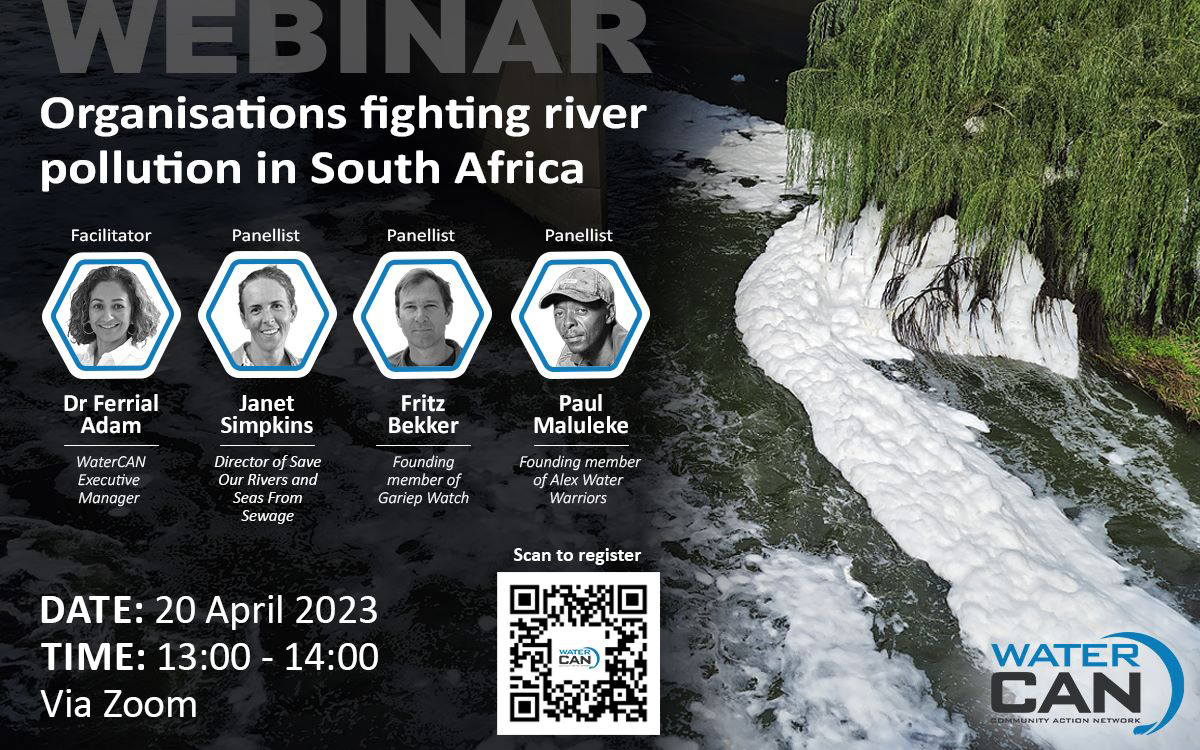
On Thursday, 20 April, at 1pm, WaterCAN will be hosting a webinar on “Organisations fighting river pollution in South Africa”.
Speakers include Dr Ferrial Adam, executive manager of WaterCAN; Janet Simpkins, director of Save Our Rivers and Seas from Sewage; Fritz Bekker, founding member of Gariep Watch; and Paul Maluleke, founding member of Alex Water Warriors.
“WaterCAN is proud to present a riveting webinar that shines a spotlight on the crucial work being done by organisations to safeguard South Africa’s precious waterways,” according to the event description.
Register here.
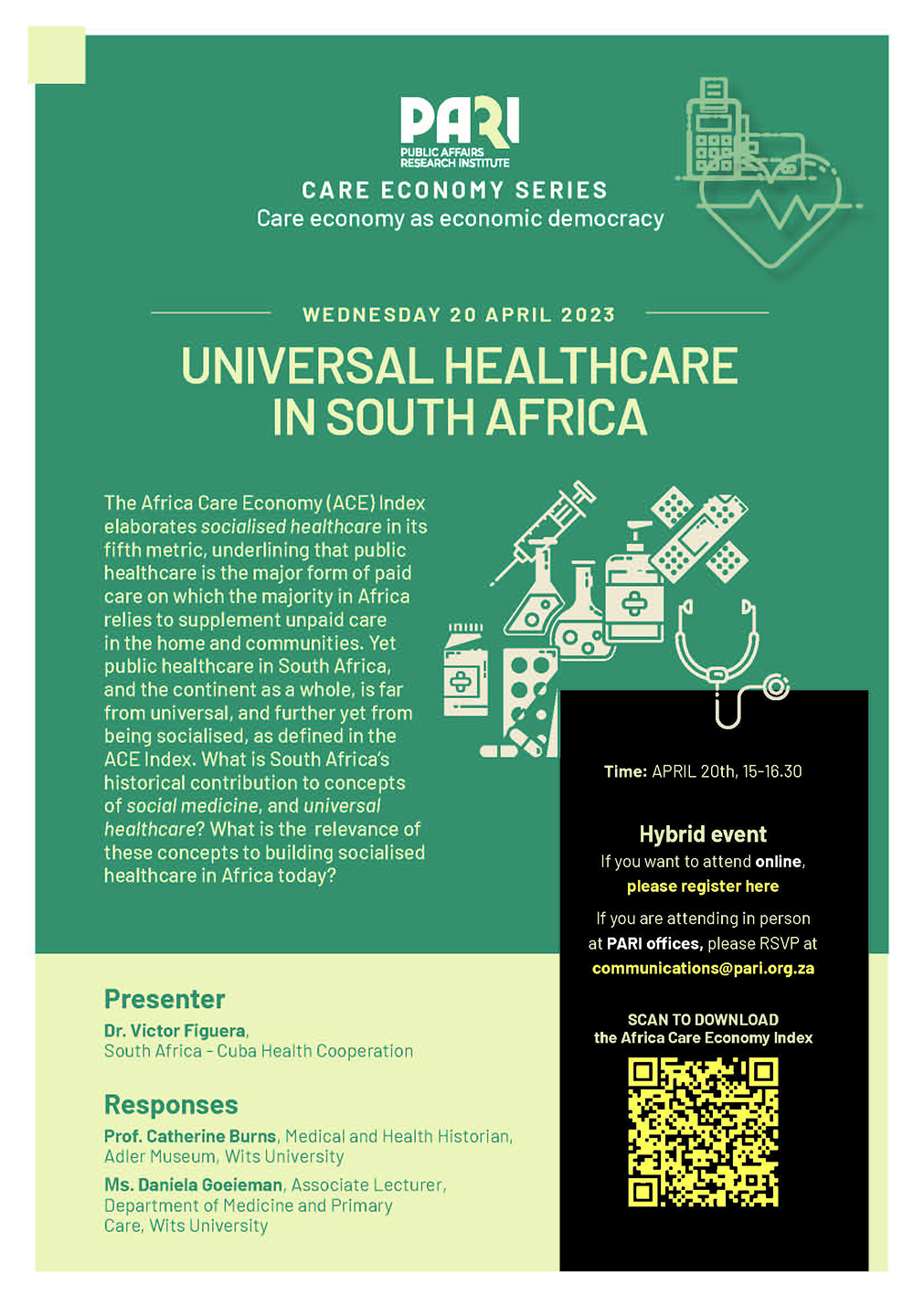
On Thursday at 3pm, the Public Affairs Research Institute is hosting a hybrid event, “Universal Healthcare in South Africa”, as part of their Care Economy Series.
“The Africa Care Economy (ACE) Index elaborates socialised healthcare in its fifth metric, underlining that public healthcare is the major form of paid care on which the majority in Africa relies to supplement unpaid care in the home and communities. Yet public healthcare in South Africa, and the continent as a whole, is far from universal, and further yet from being socialised, as defined in the ACE Index,” according to the event description.
Speakers at the event include Dr Victor Figueroa (South Africa — Cuba Health Cooperation); Professor Catherine Burns, medical and health historian at Wits University’s Adler Museum; and Dr Daniela Goeieman, associate lecturer at the Department of Medicine and Primary Care, Wits University.
Those wishing to attend the event online can register here.
Those wishing to attend in person can RSVP to [email protected].
On Thursday at 4pm, the University of KwaZulu-Natal’s Centre for Civil Society is hosting a webinar titled, “Where are we now and what has changed for black people? Revolutionary and radical thinking in the 21st century.”
The speaker will be Dr Lehasa Moloi, a decolonial scholar and senior lecturer in the department of development studies at the University of South Africa.
“Moloi seeks to frame decolonial reflections within three ideological propositions which are African centred — namely, Asante’s Afrocentricity, Karenga’s Kawaida and Diopian historiography — as a way to frame and ground the epistemic foundation to reflect on ourselves and key challenges we continue to face as black dismembered bodies seeking renewal within the period of 450 to 500 years of our submergence under the modernity project,” according to the event description.
Join the Zoom meeting here.
On Friday, 21 April, at 4.30pm, the International Diabetes Federation (IDF) is hosting a talk on the “Covid-19 pandemic year three: The impact on diabetes care”.
“During this webinar, a panel of experts will discuss the Covid-19 pandemic and the findings of the IDF Diabetes Atlas 2022 report on diabetes and Covid-19. They will also present the challenges that healthcare systems and people living with diabetes have faced during the three years of the pandemic,” according to the event description.
Speakers at the event include Professor Gillian Booth, an IDF Diabetes Atlas Covid-19 report author from the University of Toronto; Professor Andrew Boulton, past IDF President in the UK; Professor Douglas Villarroel, past IDF SACA Chair in Bolivia; Dr Kawtar Eshneen, healthcare professional and IDF Blue Circle Voice in Libya; and Alejandro Cabrera, IDF Young Leader in Diabetes from Ecuador.
Register here.
Saturday 22 April is International Mother Earth Day.
International Mother Earth Day is a reminder that we need a shift to a more sustainable economy that works for both the people and planet.
“Mother Earth is clearly urging a call to action. Nature is suffering. Oceans filling with plastic and turning more acidic. Extreme heat, wildfires and floods have affected millions of people,” according to the United Nations information page on the event.
“Restoring our damaged ecosystems will help to end poverty, combat climate change and prevent mass extinction. But we will only succeed if everyone plays a part.”
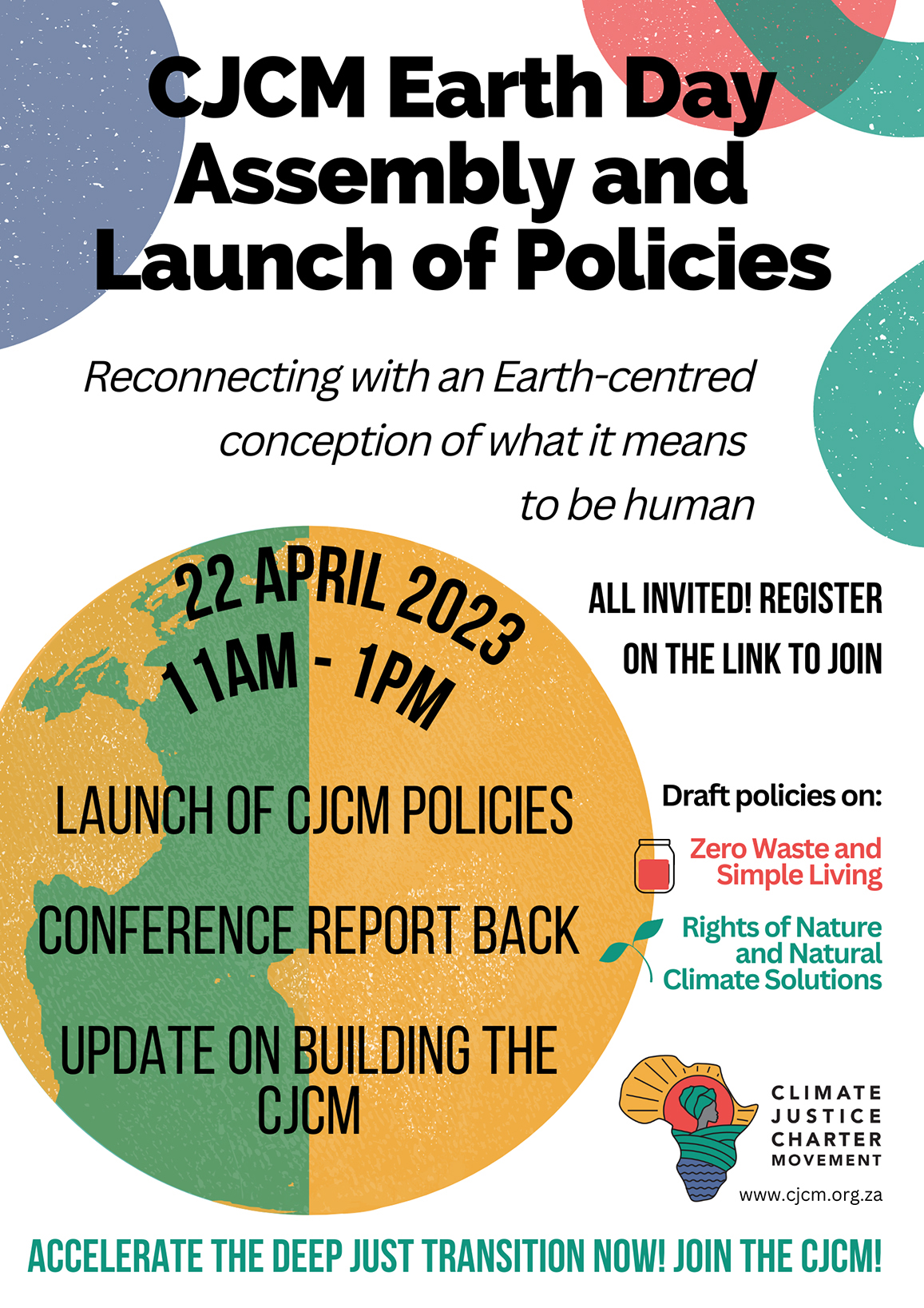
On Saturday, 22 April, at 11am, the Climate Justice Charter Movement (CJCM) is celebrating Earth Day with an online gathering that will see the organisation launch policies, give a conference report-back and update stakeholders on “Building the CJCM”.
“The Climate Justice Charter calls on all of us to reconnect with an Earth-centred conception of what it means to be human. The charter says, ‘Nature is endless, and we are just a small part of it. We have to appreciate that every element of an ecosystem has an intrinsic value and must be respected,’” according to the event description.
Register here. DM/MC








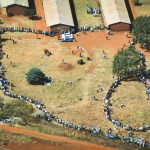











 Become an Insider
Become an Insider
Comments - Please login in order to comment.